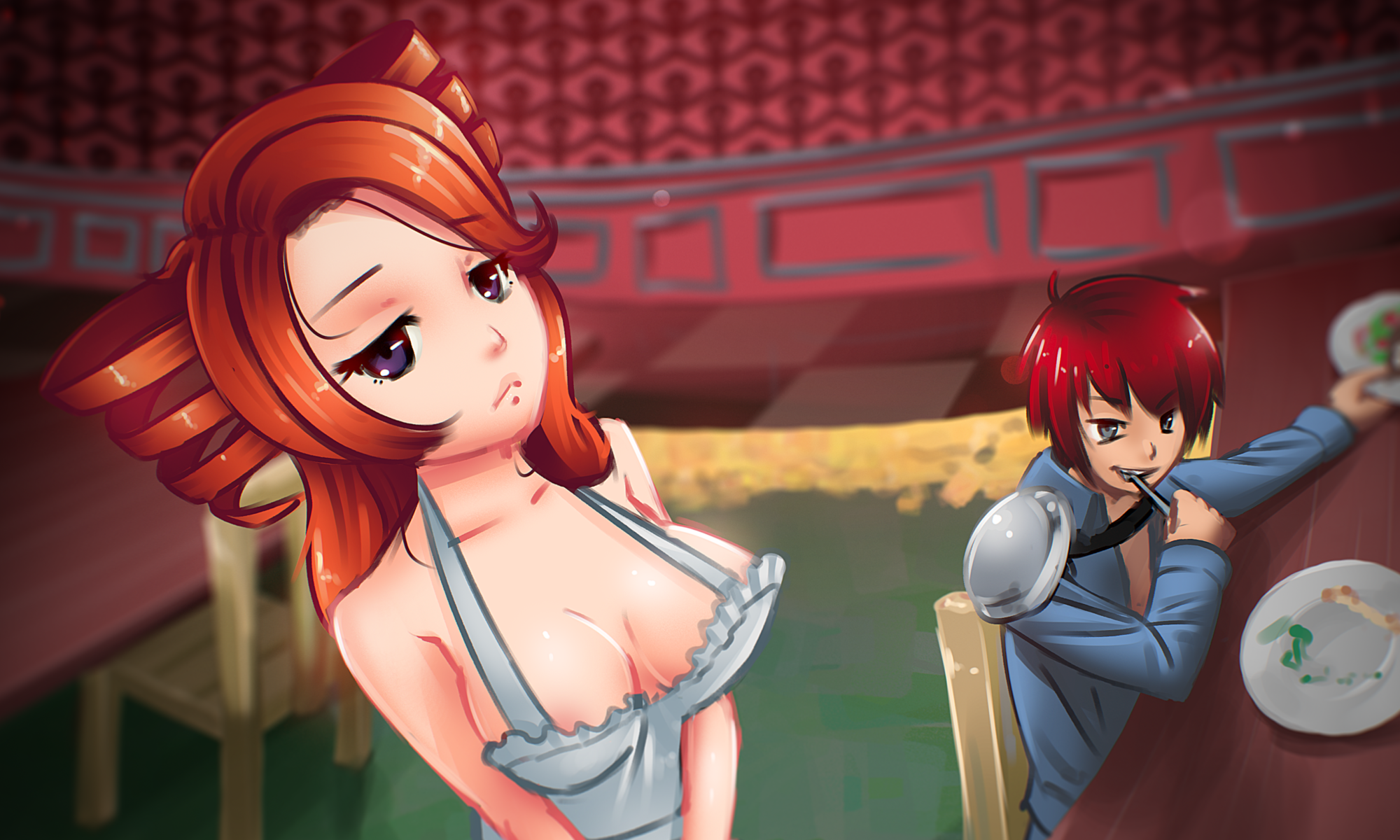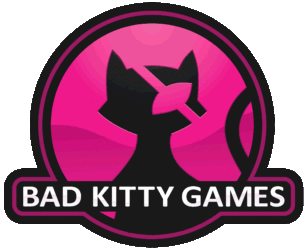Last May, at a convention, it was my pleasure to attend a panel run by a guy who was a technical artist for Bioware, and worked on the Mass Effect series and Dragon Age: Origins. One of the things he said was very interesting to me: When looking for dialogue writers, the second thing that Bioware looks for in new hires (after industry experience, of course) is experience with game mastering tabletop RPGs.
See, being a DM or GM or ST requires you to create a character to serve a purpose in the story, but then you have to respond to your players, as that character, in real time, improvising that character’s actions and reactions. Sure, you might have a couple lines, maybe even a paragraph of dialogue written down or memorized in advance to respond to specific situations, but very frequently the players will have other questions or comments, things to say that it’s impossible to plan for and you need to improvise. Because of this, you develop where you learn to anticipate certain topics and at least know how to respond to certain things. You eventually become very skilled at planning the fractal-ish possible patterns that conversations can take and thus, very good at anticipating what things a player would want to ask in a video game.
But the truth is, there’s a lot of things you can learn from tabletop gaming that will help you in game design. After all, being a game master and a game designer are both fundamentally about creating interactive experiences. While not every great game designer played D&D, if you can grab some friends and sit down ’round a table and slay some dragons together you’ll probably learn something valuable.
Here are some of my recommendations for tabletop RPGs you can play to sharpen your game design skills, and what lessons you should take from them.
Party Mechanics 101: Dungeons and Dragons, 4th Edition
A lot of people hate D&D4e. It was a dramatic departure from the feel and mechanics of 2nd and 3rd edition, and focused on two things: being accessible to new players and providing a balanced game where no character class has a strict advantage over the other. The game lost, badly, to it’s nascent competitor, Pathfinder, but if you want to try it this is an advantage: most gaming stores and bookstores have a stack of unsold 4e books, and I imagine a lot of used copies are available online.
The real strength of the system is it’s mechanics, though. D&D4e breaks down traditional RPG classes into two axes: power source, which is a fancy way of saying “theme”, and role, which tell you that class’ function in combat. A paladin, for example, is a divine defender, being their combat focus is in tanking and they are empowered by the gods. A cleric is a divine leader, still powered by the gods but focused instead on healing and buffing their allies. Simply play the game and pay attention to how combat unfolds, and think on how to apply that to your game. If you need any other recommendation, know that I’ve based the party roles and mechanics in Harem Collector heavily on D&D4e.
Creating Mood: Changeling: the Lost
This one can apply to any game in the New World of Darkness, but I picked Changeling specifically because I think it’s the best of the bunch. Basically, games need more than mechanics and a story- you need to pay attention to the mood of your games, and how your game makes the player feel. The oppression and hostility of Silent Hill, the decadence and madness of Bioshock, and the rustic comfort and relaxing atmosphere of Harvest Moon aren’t accidental- they’re build into the very foundation of each game’s design and mechanics. While the substance of the NWoD is generally mediocre to weak, the setting and tone of the game is what you need to exploit to make your games great. Changeling really reflects this- you play a person who was kidnapped by the Fair Folk and escaped, only to find that you have been replaced by a fake in real life. You can choose to try to return to the life you had, but you’ve been fundamentally changed by your experiences, and have carried some of that fae magic with you to the real world. Denying what happened to you causes you to lose Clarity and slowly become incapable of differentiating between fantasy and reality… but so does enveloping yourself entirely in the realm of the supernatural. And this causes a simple truth to emerge- you can never really escape your past, and you have to carry it with you wherever you go, in a delicate balancing act where you cannot ignore it completely nor can you allow yourself to obsess over it.
Let Gameplay Tell Your Story: Legend of the Five Rings
Pretty much any version of L5R works here, save one (explained below). L5R is a game about a fantasy version of Samurai Japan, mixed liberally with other Asian influences, and originally based on a CCG. Despite it’s origins, L5R is an excellent game with an interesting setting, but it’s true strength is in the craft of the mechanics. There are really only five character classes: bushi (fighters), shugenja (clerics/wizards), shinobi (ninja), courtiers (politicians) and monks. There are also eight clans, which occupy roughly the same role as “races” in other RPGs. But not every clan can use every class- the Lion Clan does not have any use for shinobi or monks, and instead has not one but two variations on the bushi class to choose from. Only the Phoenix Clan and Dragon Clan make any use of monks at all, but meanwhile the Crab Clan and the Scorpion Clan are the only ones to makes widespread use of shinobi. Also, while the clans themselves are balanced in general, the individual classes are not. Consider what this says about each clan- the Lion disdain both monks and shinobi, and their two bushi classes are easily two of the best in the game. Yet the Crab have a bushi school that easily competes with the Lion, and yet they make use of shinobi as well. The Scorpion have a bushi class, and while it lacks in power in a straight-up fight, it is very good at using all those little obscure rules that many people gloss over in the rulebook- stuff like disarms, called shots, and feints. However, the Scorpion shinobi class is hands-down the best shinobi in the game, while the Crab shinobi school is better at being the “skill rogue” for a party of bushi. The Lion, Crab and Scorpion shugenja are all focused on doing one thing well- Buffing, undead/demon hunting, and illusion magic respectively- none can equal the Phoenix shugenja for sheer versatility. Without me telling you anything about the history or behaviour of these clans within the setting itself, you can paint a mental picture of what each clan might be like and how they regard each other.
Similarly, the rules themselves tell you about parts of the setting. The dice mechanics don’t technically have an upper ceiling- as long as you keep rolling tens, you can “explode” your dice to higher and higher numbers- allowing for every character to occasionally have a moment of enlightenment, cutting down a difficult opponent in a single perfect stroke (or what have you). You can use your honour rating to get a bonus at any die roll in the game, therefore honourable characters tend to just be better than everyone else. Because your level is not determined by your total experience points, but how you spent those experience points, it tends to favour well-balanced characters over highly-specialized ones- a character who is a good warrior (weapon skill of choice) but also comports themselves well in society (with a decent Courtier skill) and spends their spare time studying calligraphy (Calligraphy skill) is going to understand the higher secrets of their fighting style better than a brute who does nothing but focus on fighting. It’s a very elegant system.
How to be Sexy Without Being Stupid: Exalted Second Edition
This one is mainly for H-Games. Every H-Game has to decide where on the spectrum of “porn vs plot” they are- something like a Meet-n-Fuck game is going to be the gaming equivalent of “pizza boy with extra sausage” type porno movies, without challenge, meaning or emotional content at all. Which is fine, sometimes that’s exactly what you need, and for some people, that’s all they want. But people like us (assuming you’re a fan of Harem Collector) usually need something more, an intellectual or emotional engagement that you can’t get from just porn, which is why we turn to more complex H-Games.
Exalted is a great example of a setting that was created to be sexy without being as in-your-face with it as, say, FATAL. While it’s not primarily intended to be used for erotic role-play, it also doesn’t deny sex in the same way that many other games do. There is a slave trade in the setting, and yes, some slaves are trained specifically for the bedroom. A sorcerer is perfectly capable of summoning up a succubus or a nymph for a *ahem* magical evening. Many of the supernatural powers characters receive can be used for erotic mind control purposes. Reincarnation romance is not only possible, but started out as default- they recently instituted a change saying your soul-bound partner need not necessarily have been a romantic one (allowing to, for example, have a reincarnation rivalry or friendship). At the same time, these elements are just that- elements of a greater whole that help inform the game without making the game just about fucking. It’s perfectly possible to play a celibate hero- indeed, it’s one of the few games out there that treats celibacy as one of a number of heroic traits, being informed by similar tales in Buddhist myth and Christian martyrdom.
Whoa this ended up being a long one- I’ve been writing for two and half hours at this point. I’d better cut it short. Anyway, these are just my recommendations for games- sites like drivethrurpg.com have tons of different games for you to try, many of which have free “quickstarts” which contain a brief on the rules, some pre-made characters and a sample adventure for you to try, so if you’ve never played tabletop RPGs before and are looking to try, I’d start there.


Man this is hilarious, Bioware looking for people with tabletop experience while throwing away anything that look like a rpg mechanic..
Talking about purposeful characters when the “personality” of the characters they create get closer and closer to a perfectly flat line.